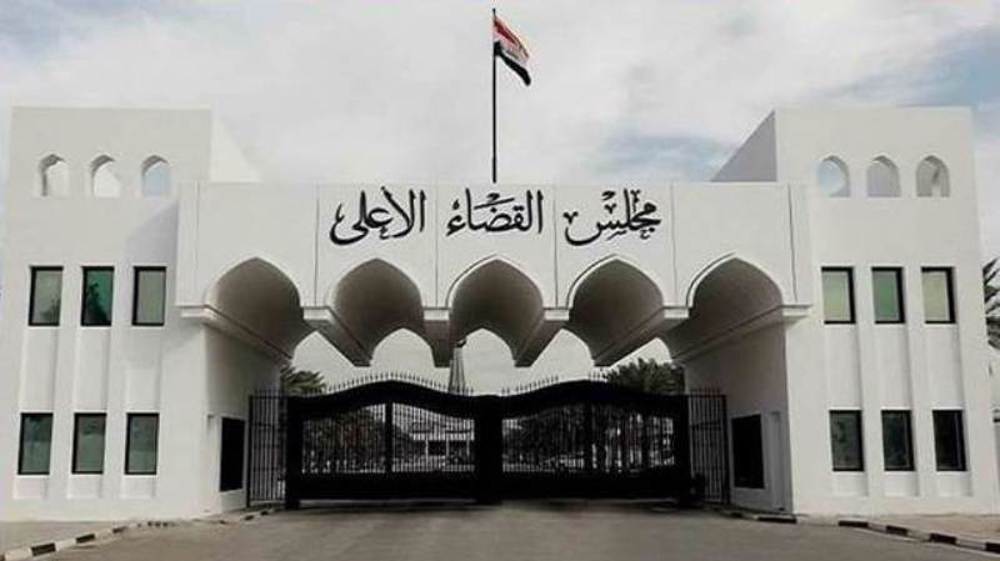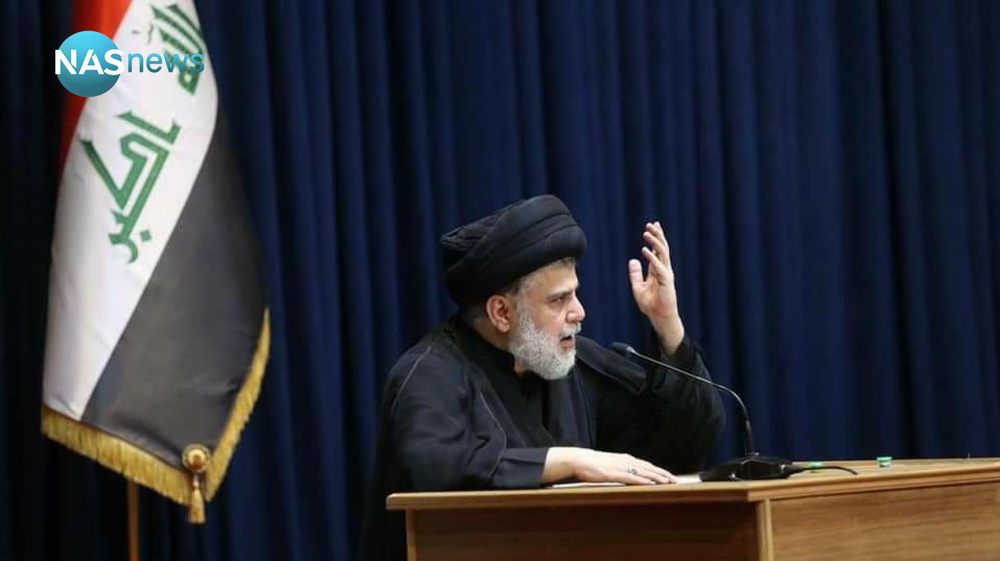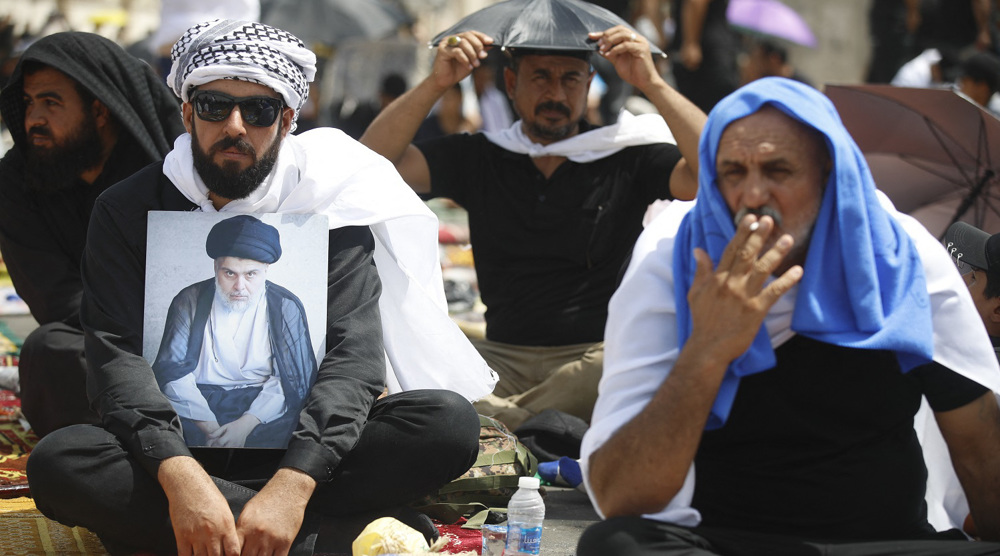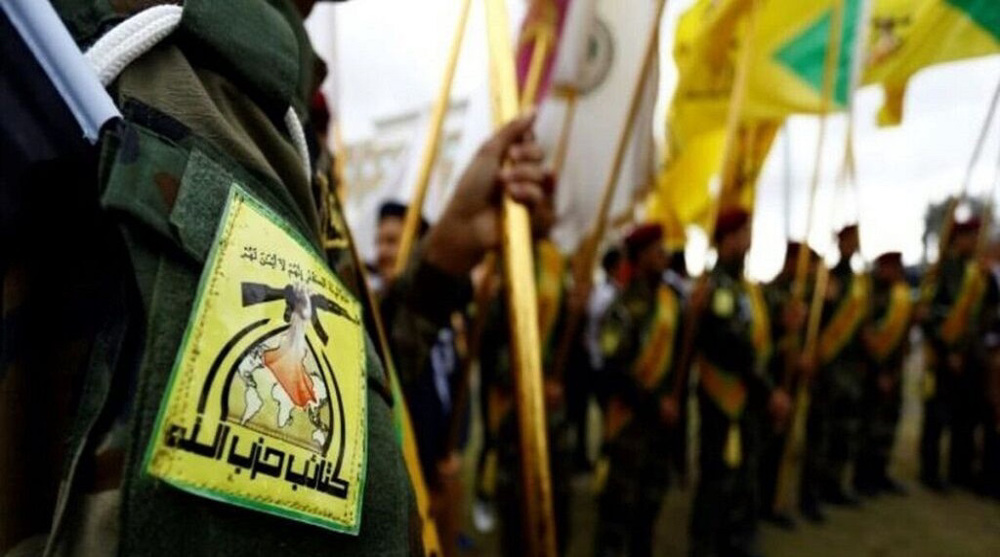Iraq’s top court reject's Sadr's ultimatum, says it does not have authority to dissolve parliament
Iraq’s Supreme Judicial Council (SJC) says it lacks sufficient authority to dissolve the country's parliament, urging all parties to refrain from getting the judiciary involved in political rivalries.
The SJC made the announcement on Sunday in response to the Iraqi cleric Muqtada al-Sadr. On Wednesday, Sadr warned of unspecific consequences if the judiciary did not heed his call to dissolve the parliament by the end of this week and pave the way for early elections.
“The Supreme Judicial Council does not have the authority to dissolve the parliament,” the top court said in a statement.
Stressing that its main job is to deal with legal matters, the court said it cannot “interfere in the work of the legislative or executive authorities.”
Iraq has been grappling with a political crisis in the absence of a functional government since October when it held its last legislative elections.
Sadr is the populist leader of Saeroon faction. His political bloc emerged as the biggest parliamentary faction in the election, but fell short of an absolute majority needed to form a government, prompting the current political deadlock.
In June, all 73 legislators of Sadr's bloc quit their seats in a move seen as an attempt to pressure political rivals into expediting the formation of a government.
Sadr and his supporters have helped inflame tensions over the past few weeks with a great number of his supporters storming and occupying the parliament, thus preventing the formation of a government nearly 10 months after the last elections.
His supporters stormed the parliament late last month as the rival parliamentary faction known as the Coordination Framework attempted to form a government led by Muhammad Shia Sudani, a figure close to former premier Nouri al-Maliki.
The Coordination Framework said earlier that the parliament would have to convene to dissolve itself. On Friday, supporters of the faction also rallied in Baghdad to protest the occupation of the legislature by al-Sadr’s supporters.
“SJC discussed the request of Sayyed Muqtada al-Sadr dated 10/8/2022 for the dissolution of the parliament and after discussion, SJC found that it agrees with al-Sadr in diagnosing the negativity of the political reality witnessed by the country and the ongoing constitutional violations represented by the incomplete formation of constitutional authorities by electing a president of the republic and the prime minister and the formation of the government within the constitutional periods, which is an unacceptable situation and must be addressed and not repeated,” the Supreme Judicial Council added in its Sunday statement.
Regarding Sadr’s request for dissolution of the parliament, the SJC reiterated that it lacks the authority to dissolve the legislature, “because the functions of the SJC are entirety related to the administration of the judiciary only, and do not include any authority that allows it to interfere in the affairs of the legislative or executive authorities.”
In conclusion, the top court urged “all political and media parties not to involve the judiciary in rivalries and political competitions,” stressing that “the judiciary stands at the same distance from everyone, because the basis on which it is based is the application of the constitution and the law, and these are general rules that apply to everyone by the same standard and are not subject to jurisprudence.”
Earlier this month, the outgoing Prime Minister Mustafa al-Kadhemi called for a “national dialogue” in a bid to bring all sides together to reconcile.
The United Nations, for its part, has called on various political factions in Iraq to set aside differences and look for “urgent solutions” to the protracted political crisis.
VIDEO | Press TV's news headlines
Paris silencing pro-Palestine voices
Iran raises alarm at ‘environmental consequences’ of US militarism
Iran: UN Security Council inaction on Israeli crimes ‘catastrophic’
Report: US intel debunks Trump's claim of Iran working on ICBMs
Vance says 'skeptic of military intervention' after progress in Iran talks
VIDEO | Third round of Iran-US nuclear talks concludes in Geneva
Geneva talks: Iran signals firm resolve, rejects US pressure, proceeds with cautious optimism












 This makes it easy to access the Press TV website
This makes it easy to access the Press TV website